
Putting aside Donald Trump’s myopic and tangential recent rantings on immigration for a second, the issue is certain to remain a central topic going forward in the 2016 presidential election.
Latinos are still the largest minority group in the country, but in 2013 Asians replaced non-Hispanic whites as the fastest-growing demographic in the U.S. As two powerful groups with many personal immigrant experiences, both will demand to hear the candidates’ positions on the issue, which will really count for votes as they can sway an election with their power. And as they vie for the support of these voting blocs, the candidates’ positions on how to deal with the more than 11 million undocumented immigrants in this country could break a campaign to bits — or propel one to victory and a new address at 1600 Pennsylvania Ave.
From one extreme to the other, conservative and liberal candidates cover the spectrum of positions on the issue. Each candidate running for president in 2016 agrees that the tide of illegal immigration must somehow be stopped, but when the debate becomes what measures are best to reform the system, the issue gets clouded over by ideology. Most Republican candidates articulate fears of losing facets of American culture, the dominant language disappearing, concerns over lost jobs and rising crime from too many poor, mostly Spanish-speaking new arrivals to this country.
Read more: What 10 Republicans Should Do If the POTUS Thing Doesn’t Pan Out
While we all have our own perspectives on the issue, more important than what we the voters might think is how our ideas will be matched by the candidate who ultimately gets that support. It is a divisive issue, and the candidate’s positions will force us to take sides. Immigration and immigration reform, maybe more than any other issue, could shape the 2016 election and affect who becomes the next president.
The most recent attempt at comprehensive immigration reform was the guest worker plan that passed the Senate in 2013. Because of vocal opposition from conservative Republicans in the House of Representatives, that bill died in Congress. President Barack Obama would have signed that bill into law had it been passed by both chambers.
Following the Democrat’s midterm election defeats last fall, Obama shelved any further action to advance his positions and signed an executive order authorizing temporary legal status to undocumented immigrants and provided for an indefinite reprieve from fear of deportation. But in light of no comprehensive bill being completed, this half-measure will no doubt be built upon by whoever becomes the next president.
Whether this temporary middle ground chartered by Obama will be a changed course entirely or built upon in the same direction, the candidates’ positions on the issue will be central to their campaigns and will forecast their action while in the White House.
So, let’s explore five presidential candidates’ thoughts and positions on the issue.
TED CRUZ
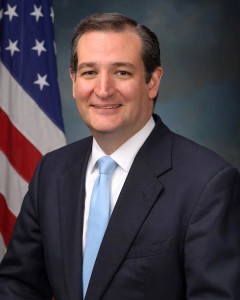
The most conservative candidate profiled here, the junior senator from Texas recently said publicly that Donald Trump is “absolutely right” on immigration. As a starting point, that statement illustrates where Cruz is in the debate, but his position is also more nuanced than The Donald’s simplistic blame-Mexico game.
The son of a Cuban immigrant, Cruz wants people to only enter the country legally. As president, he would strictly enforce the rules at America’s borders, would remain opposed to expanding amnesty and believes that Obama’s executive action on immigration has harmed both legal citizens and those who enter the country illegally.
MARCO RUBIO
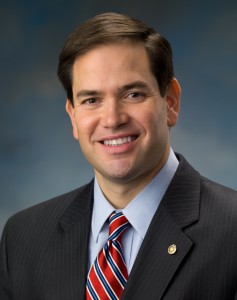
An offspring of two Cuban parents, the Florida senator supports comprehensive immigration reform. He voted for the 2013 bill and favors a path to citizenship for those who entered this country illegally.
In breaking with his colleagues on the right, as Rubio made clear in a 2013 multi-step proposal, he does not believe that a path to citizenship — with fines, payment of back taxes, background checks and a probationary period included — is the same as an offer of amnesty.
JEB BUSH
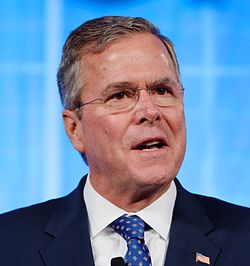
Possibly the most liberal Republican on the issue in the field, Bush’s platform puts him somewhere in the middle between Cruz’s and Trump’s extreme positions on the right and Hillary Clinton’s on the left.
When Bush was the governor of Florida, he supported an unsuccessful bill that would have given driver’s licenses to illegal immigrants. He also previously called for comprehensive immigration reform with a path to full citizenship for people who entered the country illegally, but has since changed this position. He now favors a road to mere legal status for the undocumented.
HILLARY CLINTON
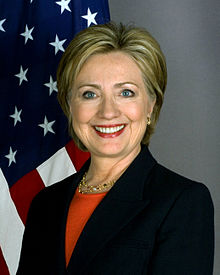
The former First Lady, New York senator and Secretary of State has the longest history of any candidate in regard to articulated policy on the issue. As the furthest left on the issue, Clinton has said she supports comprehensive immigration reform and a path to citizenship for undocumented immigrants. However, as a senator, she advocated for stronger border controls and voted for the Secure Fence Act, which authorized the construction of 700 miles of barrier between the U.S. and Mexico.
More recently, Clinton has come out hard in support of Obama’s deportation relief protection and immigration reform. She has also said that as president — without any action from Congress — she would go even further to support the undocumented than Obama did, which earned her much praise from immigration activists.
BERNIE SANDERS
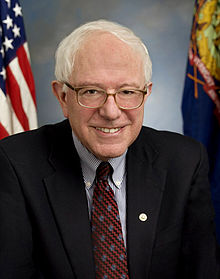
Predictably to the left of Bush, Cruz and Rubio, but not as fiercely supportive of illegal immigrant’s rights as Clinton, the Vermont senator voted for the 2013 bill and favored the president’s executive action. Because Sanders did not mention immigration once in his campaign kickoff speech and had not outlined a policy on the issue until recently — possibly because he represents a state with very few immigrants — he had been polling badly among Latino voters.
While Sanders was at first playing catchup on the issue, he came out swinging in a wide-ranging policy speech before supporters at the Phoenix Convention Center Saturday where he showed his trademark progressive passion. In the stump Sanders said he both supports a path to citizenship for illegal immigrants and believes in comprehensive reform of the system.
Noah Zuss is a reporter for TheBlot Magazine.





